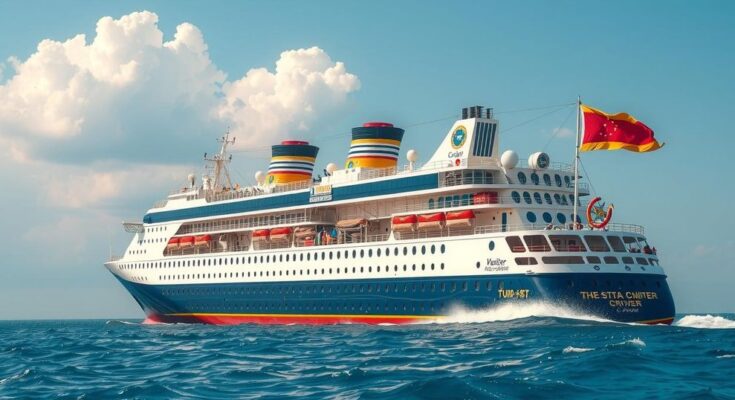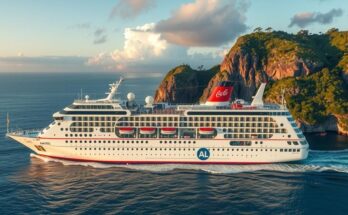The Great Passage cruise is set to retrace the transatlantic slave trade route from Brazil to Angola, aiming to educate participants about this dark chapter in history. The initiative, which includes 99-year-old Helena Monteiro da Costa, whose father was enslaved, seeks to confront the painful legacy of slavery and promote dialogue between descendants of enslaved individuals and the enslavers. This journey aims to foster remembrance, reconciliation, and a deeper understanding of cultural ties between the two nations.
The Great Passage cruise, scheduled for next year, represents a unique reversal of the historical transatlantic slave trade route taken by millions. This initiative aims to educate participants about the shared heritage between Brazil and Angola, confronting a painful past that has shaped both nations. Helena Monteiro da Costa, a 99-year-old whose father was enslaved and brought from Angola to Brazil, has expressed her aspiration to partake in this historic journey back to her father’s homeland in a symbolic act of remembrance and reflection.
Between the 16th and 19th centuries, Brazil was the destination for approximately five million Africans, the highest number of any country in the Americas. Many of these individuals were forcibly taken from Angola under horrific conditions aboard Portuguese ships, marking a dark chapter in both Brazilian and Angolan histories. The cruise seeks not only to honor those who endured this suffering but also to spark conversations about accountability and reconciliation between descendants of enslavers and the enslaved.
The initiative embodies a step toward addressing historical injustices through education, fostering dialogue on the legacy of slavery, and promoting awareness of the cultural ties that bind Brazil and Angola. It is expected to be a transformative experience for participants, many of whom seek to understand their ancestral connections and the impacts of slavery on contemporary society.
In summary, the Great Passage cruise is more than a journey; it is a collaborative effort to illuminate the past, facilitate healing, and encourage discussions about the implications of the slave trade on current and future generations.
This event represents a significant opportunity to reflect on historical narratives and commit to a more inclusive understanding of history. By retracing the steps of ancestors, both Brazilian and Angolan participants will confront the realities of their shared heritage, fostering a deeper connection and awareness of the struggles faced by their forebears.
The Great Passage cruise highlights the historical and cultural relations between Brazil and Angola, focusing on the transatlantic slave trade that forcibly transported millions of Africans to the Americas. Between the 16th and 19th centuries, Brazil became a primary destination for enslaved people, creating a deep-rooted connection to Angola, which supplied a significant proportion of these individuals. The cruise aims to promote education about this history, acknowledging the painful legacy of slavery while fostering dialogue and reconciliation.
The Great Passage cruise serves as a poignant reminder of the transatlantic slave trade’s horrors while providing a platform for education and reflection. As participants traverse the same waters their ancestors once did under duress, this initiative bridges the past and present, fostering connections between Brazil and Angola. The journey not only seeks to remember the millions lost to slavery but also to engage current generations in understanding the significance of their shared histories and promoting healing through transparency and dialogue.
Original Source: www.scmp.com




